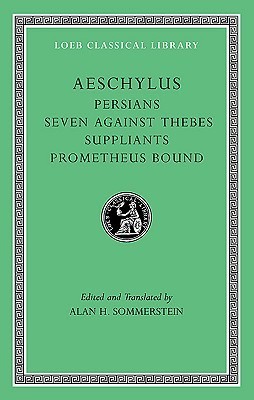
Sophocles: The Complete Plays
Book Description
Ancient Greece is alive with betrayal, passion, and fate in 'Sophocles: The Complete Plays.' Dive into a world where heroic figures clash against the gods' will, wrestling with the dark corners of ambition and desire. Every character faces harrowing choices that resonate through time—love turns to anguish, loyalty shatters beneath the weight of truth, and justice hangs by a thread. Each tragedy unveils the human condition's stark beauty and despair, drawing audiences into a visceral emotional storm. As alliances crumble and destinies collide, one question lingers: what price must be paid to uncover the truth?
Quick Book Summary
"Sophocles: The Complete Plays" showcases the timeless tragedies of an Ancient Greek playwright whose works explore the depths of human ambition, the consequences of moral conflict, and the unyielding grip of fate. Across the surviving seven plays, Sophocles crafts stories where kings, queens, and commoners alike are forced to confront devastating truths and make impossible choices, often in defiance of the gods’ inscrutable will. Rich in poetic language and powerful emotion, these dramas—such as "Oedipus Rex," "Antigone," and "Electra"—delve into enduring themes like justice, loyalty, love, and sacrifice. The characters’ struggles resonate through history, revealing how personal flaws and societal duties shape destinies. Ultimately, Sophocles’ plays invite readers to ponder the price of truth and the meaning of suffering in the human experience.
Summary of Key Ideas
Table of Contents
Fate Versus Free Will
Sophocles’ plays revolve around the tension between the power of fate and the desire for personal agency. Characters consistently attempt to escape or outwit prophesied destinies, as seen most vividly in "Oedipus Rex," where Oedipus struggles to avoid the doom foretold by the gods, only to fulfill it through his very striving. This theme underscores the ancient Greek worldview: human beings, despite their intelligence and noble intentions, remain subject to larger, often inexplicable cosmic designs. The tension between accepting fate and striving for control provokes both empathy and reflection on the limits of self-determination.
The Cost of Truth and Integrity
Integral to the tragedies is the peril and nobility of seeking and speaking the truth. Characters like Antigone and Oedipus are determined to uncover what is hidden—whether a brother's body denied burial or an identity shrouded in mystery—regardless of the personal cost. Their journeys highlight the profound suffering that comes with integrity and the pursuit of justice, yet also the unwavering courage these choices demand. Sophocles suggests that the search for truth, while necessary, often exacts a heavy toll on the seeker and the world around them.
Family and Loyalty in Conflict
Family bonds and competing loyalties form the emotional heart of many plays. In "Antigone," the heroine’s commitment to her brother’s burial clashes with her loyalty to the state, embodied by Creon. Similarly, in "Electra," the imperative for vengeance against a murderous mother battles with filial love and duty. These stories probe the complexities of kinship and the inevitable conflicts that arise when personal values oppose societal or divine mandates. Sophocles delicately examines how grief, anger, and devotion drive both courage and tragedy within a family’s fate.
Justice, Law, and the Divine
Sophoclean drama regularly tests the boundaries of law, justice, and divine authority. Characters must weigh the legitimacy of human decrees against higher moral codes or religious duties. The tragic consequences of defiance or obedience—Creon's downfall after defying the gods’ unwritten laws or Oedipus’ punishment for unwitting crimes—invite reflection on the nature of justice and the challenge of reconciling competing legal or ethical systems. In so doing, the plays raise critical questions about the proper balance of power between ruler, subject, and the sacred order.
The Tragic Flaws of Leadership
At the core of each tragedy lies a flawed leader whose personal weaknesses bring ruin despite noble intentions. Pride, stubbornness, or blindness to truth lead figures like Oedipus and Creon to catastrophic decisions. Sophocles’ depiction of leadership exposes the dangers of hubris and the importance of humility, wisdom, and self-awareness. By illustrating how even the most capable individuals can fall prey to their limitations, the plays offer enduring insights into the pitfalls and responsibilities of power.
Download This Summary
Get a free PDF of this summary instantly — no email required.





